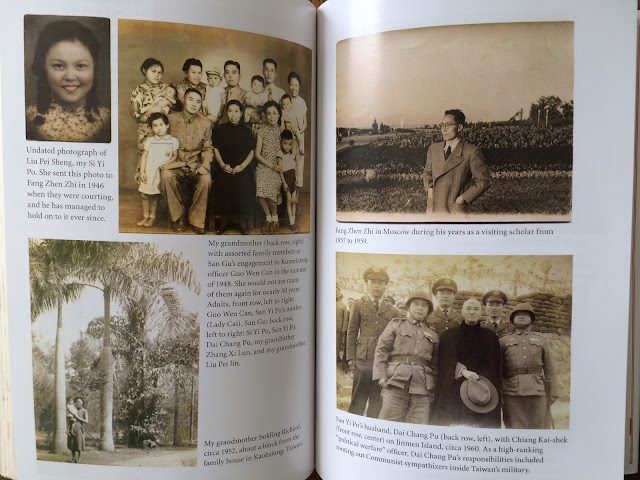I enjoyed reading The Porcelain Thief by Huan Hsu. Huan recounts his genealogical escapade in China, though he did not realize that he was researching his family's history until he neared the end of his journey.
Huan was born in the United States and is of Chinese heritage. He knows little about his family's history. He becomes fascinated with the family story of burying porcelain in the backyard before fleeing for their lives. Huan decides to track down this old homestead and the porcelain.
Uncovering his family's history in China is extremely difficult. He is fortunate to have living family members in China, one of whom employs Huan at his company, providing him with legal permission to stay in China. Huan must learn the Chinese language and learn how to navigate the political and social customs of this culture so foreign to him.
As researchers of our family's history, we can identify with Huan when he tracks down elderly family members and tries to extract relevant information from them. He learns that photographs and records were destroyed; people, places, and memories lost over the years; graves vandalized, moved, or reburied under new construction.
Huan's family's struggles reflect the struggles of China as a whole. The family was torn apart by war, invasions, political movements, and major cultural shifts- in every generation. His family's history is mostly oral, and as Huan discovers, will remain so without the availability of records.
While interviewing his grandmother's aged sister, Huan realizes:
"She wasn't making up her memories, but they had unmoored from their original context and drifted into a mosaic with no beginning, end, or order. It wasn't all that different from my own uncertain understanding of how the fragments of our family history fit together, or what was real and what was imagined, and with fewer and fewer people to ask for the truth."
The homestead where the porcelain was supposedly buried was "forfeited" by the family when they fled. Huan and his family likely have little legal recourse to reclaim the property, and digging for the buried porcelain is prohibited as it could indicate that the family may have a claim against the current corporate industrial owners. The entire neighborhood was razed, as was most of their family's discoverable family history.
 |
| Some family pictures survived. |
I received this book from Blogging for Books for this review. If you have an online presence and interest in reviewing books, give this program a try.


No comments:
Post a Comment